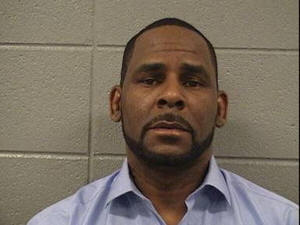|
Kelly, 55, was convicted last September in Brooklyn federal
court following a 5-1/2 week trial that amplified accusations
that had dogged the singer of the Grammy-winning hit "I Believe
I Can Fly" since the early 2000s.
Kelly, whose real name is Robert Sylvester Kelly, is among the
most prominent people convicted of sexual misbehavior during the
#MeToo movement against such conduct by prominent men. He has
repeatedly denied sexual abuse accusations.
U.S. District Judge Ann Donnelly is scheduled to sentence Kelly
at a hearing starting at 10:30 a.m. EDT (1430 GMT).
Prosecutors said Kelly should spend more than 25 years in prison
for his conviction on charges of racketeering and eight counts
of violating the Mann Act, which bars transporting people across
state lines for prostitution. They argued he demonstrated a
"callous disregard" for his victims and showed no remorse.
Lawyers for Kelly said he deserves no more than 10 years, the
mandatory minimum, arguing his history as an abused child may
have led to his adult "hypersexuality" and that he no longer
poses a risk.
At the trial, several of his abuse victims testified about how
Kelly would demand that his victims strictly obey rules such as
needing his permission to eat or go to the bathroom, calling him
"Daddy," and writing "apology letters" that purported to absolve
him of wrongdoing.
Kelly also faces federal charges in Chicago on child pornography
and obstruction, and state charges in Illinois and Minnesota.
(Reporting by Luc Cohen in New York; Editing by Richard Chang)
[© 2022 Thomson Reuters. All rights
reserved.]
This material may not be published,
broadcast, rewritten or redistributed.
Thompson Reuters is solely responsible for this content.

|
|




